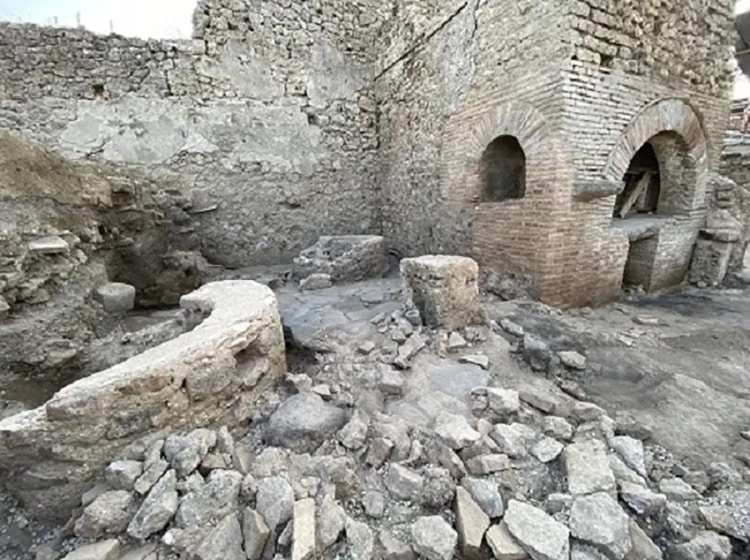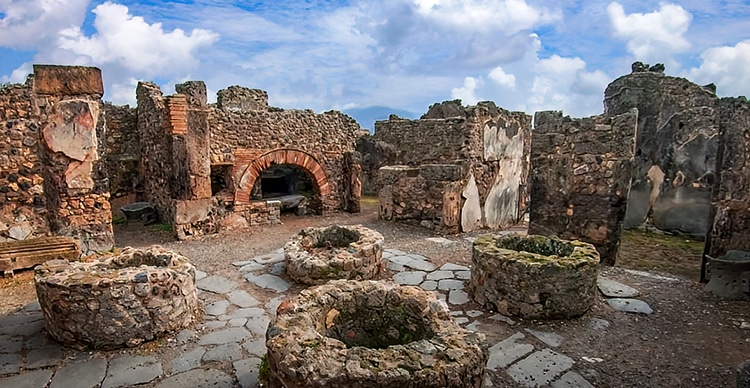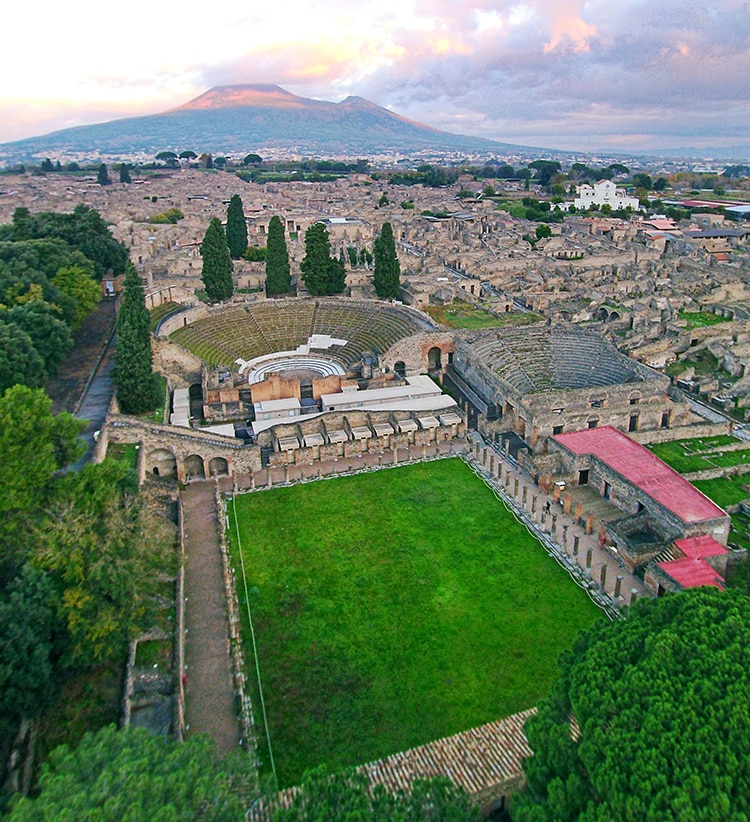
The prison bakery recently announced. (Photo: Pompeii Archaeological Park)
Pompeii—the Roman-era village preserved under layers of ash from the eruption of Mount Vesuvius—has long fascinated historians. Discovered in the 18th century, excavations have been ongoing since 1748. After centuries, much still remains to be discovered and documented. Recently, during excavations of a villa, a disturbing structure emerged in the dig. The archeologists announced they found a prison-bakery, where enslaved people were forced to work alongside donkeys in brutal conditions to grind flour for bread. The room is a sobering reminder of the ancient history of slavery.
Located in Region IX, Insula 10, the room belongs to an ancient house which was being renovated at the time of the volcanic explosion. The house has residential and productive segments, and the bakery is in the latter. Three bodies were discovered in one of the rooms, indicating the bakery complex was in use at the time. The room where enslaved laborers would have been locked was a stone, dark cell with only a few high, barred windows. The only exit led into the main house, suggesting permission was required to leave. “It is, in other words, a space in which we have to imagine the presence of people of servile status whose freedom of movement the owner felt the need to restrict,” notes director Gabriel Zuchtriegel.
Millstones were also found, with arcs of indented tracks in the basalt floor. These tracks were created for the blindfolded donkeys who cranked the stones to grind flour. (A feeding trough was also discovered nearby.) Dough would then be made from the flour by the enslaved laborers, and baked into loaves for household consumption.
The function of the bakery clearly depended on those enslaved within, and the same holds true for the ancient world at large. Slavery was widespread in agriculture and mining, as well as in domestic households. Unlike in the American South, it was not strictly based on skin color or geographic origin, and the modern concept of race cannot be easily mapped onto the practice. People could become enslaved by birth or capture, and people with certain geographic origins were sometimes sought for their perceived skills. A universal truth across these experiences of slavery in the ancient world was the lack of freedom and self-determination, and often brutal conditions such as those seen in the newly discovered bakery.
Ongoing excavations in the ancient, preserved Roman city of Pompeii have revealed the remains of a bakery where enslaved laborers toiled away.

A different bakery in Region VIII of Pompeii. (Photo: Mary Harrsch via Wikimedia Commons, CC BY-SA 2.0 DEED)
Slavery existed in ancient civilizations, and archeology can provide insight into these brutal practices.

A view of Pompeii and Mount Vesuvius. (Photo: ElfQrin via Wikimedia Commons, CC BY-SA 4.0 DEED)
h/t: [ARTnews]
Related Articles:
Art History: Ancient Practice of Textile Art and How It Continues to Reinvent Itself
Developers of COVID-19 mRNA Vaccine Technology Win Nobel Prize
Research Finds Up to 35% of the World’s Population Sneezes After Seeing Bright Light
Artist Fills Forest with Life-Size Sculptures Made from Woven Rods of Willow
